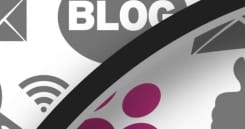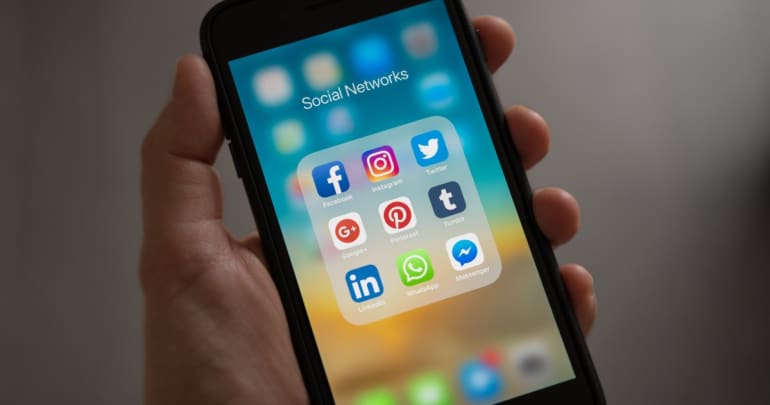Social media plays an increasingly important role in everyday life. Many people may spend much of their days interacting in digital spaces for various reasons. Some may use social media for personal benefits or professional obligations. Others may find it to be an important resource for staying connected with supports, friends, and family.
However, social media can also pose a unique challenge to those in recovery, especially those who have graduated from a treatment program and are establishing new sober lives and routines. Effectively moderating social media is crucial for mitigating its impact on mental health as well as the chances of relapse for those continuing to navigate their sober journey.
The Dangers of Unmoderated Social Media in Recovery
Social media has made connecting with others incredibly easy. For those in recovery, this can be a useful tool. Social media can connect a person to dedicated supports. It can also be used as a resource to find others who are navigating their own recovery to challenge feelings of isolation in daily life. However, it can also present many unique challenges that can influence a person’s risk of relapse, with present dangers needing active consideration and strategies to address.
Fosters Unfair Comparisons
Social media can expose an individual to many other people. However, it can be difficult to avoid drawing comparisons between oneself and others when exposed to these posts and online environments. Nevertheless, this can be wholly detrimental to a person’s recovery journey. Some in recovery may be experiencing their own change in professional life, relationships, and more. Further, social media can cause those in recovery to judge themselves by the accomplishments of others or introduce feelings of jealousy, envy, depression, or self-doubt.
While this can create complex feelings, it is wholly unfair to judge oneself by anothers’ metric. Each individual will have their own challenges, pace, and goals throughout various stages in life. Unfortunately, this is not something that is often reflected through social media.
Constant exposure to social media can be incredibly difficult, introducing profound feelings of doubt, guilt, shame, depression, and more. Additionally, it is common that those navigating their continued recovery may feel their own motivation or accomplishments compromised as a result of various exposures across social media platforms. These feelings can sow doubt and bring unnecessary challenges to sobriety, even compromising a person’s desire to maintain sobriety and increasing the risk of relapse.

See the warnings signs of addiction to social networking sites and find out if you are beginning to act like a social media addict. Here are the tell-tale signs that your heavy social-media habits are pulling you down to the mire of addiction, and that you need help before it’s too late!
More infoMediates Exposure to Negative Influences
Unmoderated use of social media can also introduce newfound negativity into daily life with regular use, impacting the risk of relapse throughout recovery. From a stream of negative news stories, argumentative posts or conversations, to doomscrolling, social media can have many detrimental effects. These negative influences can continue to shape a person’s perspectives, attitudes, and worldview throughout recovery. Further, it can create a more pessimistic view of the world and a person’s role in it, compromising other recovery efforts, motivation or bringing intense stress.
Compromises Sleep
Sleep is an important part of an effective daily routine in recovery. Being well-rested can empower those in recovery to actively employ other coping and recovery strategies. Additionally, it can inevitably improve one’s ability to process stress, anxiety, urges, or other daily challenges throughout sustained sobriety.
However, social media can instead keep an individual up at night, compromising this sleep while replacing it with potentially anxiety-inducing exposures. A lack of sleep can further exacerbate feelings of anxiety and emotional challenges. Some may find it difficult to get to sleep if they are using their phones or computer in bed. Others may instead have their quality of sleep compromised as a result of overstimulation from social media use.
Taking Control of Social Media
Managing the use of social media is paramount for those in recovery to continue benefitting from its advantages while mitigating its impact on their emotional health and chances of relapse. Relapse is a devastating experience, and employing personalized strategies to manage the use of social media is crucial for a person’s sobriety. It is also crucial for maintaining their well-being and relationships throughout the continued recovery journey.
Establish Blackout Times
For some, the use of blackout times can be beneficial. Having dedicated times when electronic devices are turned off, such as around mealtimes with family and friends, before bed, and first thing in the morning, can help each individual better regulate their exposure to social media while focusing on other needs and responsibilities. Shutting down a person’s phone before bed can promote the healthiest possible sleep cycle. Keeping devices off during meal times can foster better in-person communication skills and develop these crucial relationships with family, friends, and supports.

Managing the use of media throughout recovery is a crucial skill. For Hawaii rehabilitation programs, call Hawaii Island Recovery at 866) 390-5070
More infoRemove Access to Apps
Others may benefit from keeping their phone devoid of social media apps altogether or making them more difficult to compulsively access. Keeping these apps difficult to find and open can ensure that an individual is only engaging with them when they are consciously thinking of it. Additionally, it can help to promote intentional use rather than compulsively scrolling through these media sites. This approach can help mitigate some of the stresses that come with social media that stem from compulsive use, such as the dangers of doomscrolling.
Those continuing to navigate their sober lives are already tasked with processing and overcoming intense stress. There is nothing easy about managing sobriety after treatment. Using rehabilitation services in Hawaii and taking action to prevent social media from influencing the risk of relapse is instrumental in continuing to create a healthy and sober future.
Social media can be difficult to manage and can come with a number of destructive effects on your sobriety. At Hawaii Island Recovery, we understand the need to address the role of social media in your continued recovery success. From your time in our walls to using our unique approach to rehabilitation services in Hawaii even after you have graduated, we are committed to your continued well-being, providing education and scaffolding further personal and spiritual growth. Your time with us is personalized to fit your needs, with alumni always being welcome to explore how they can address additional needs, such as social media management and the stresses that accompany it. For more information, call us at (866) 390-5070.
 Hawaii Island Recovery
Hawaii Island Recovery 











